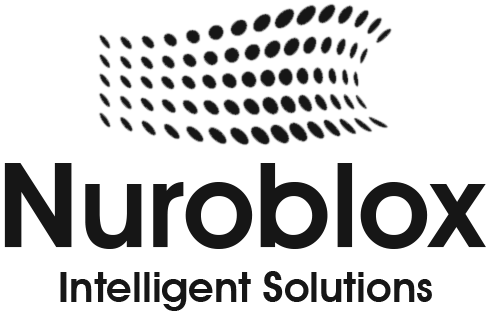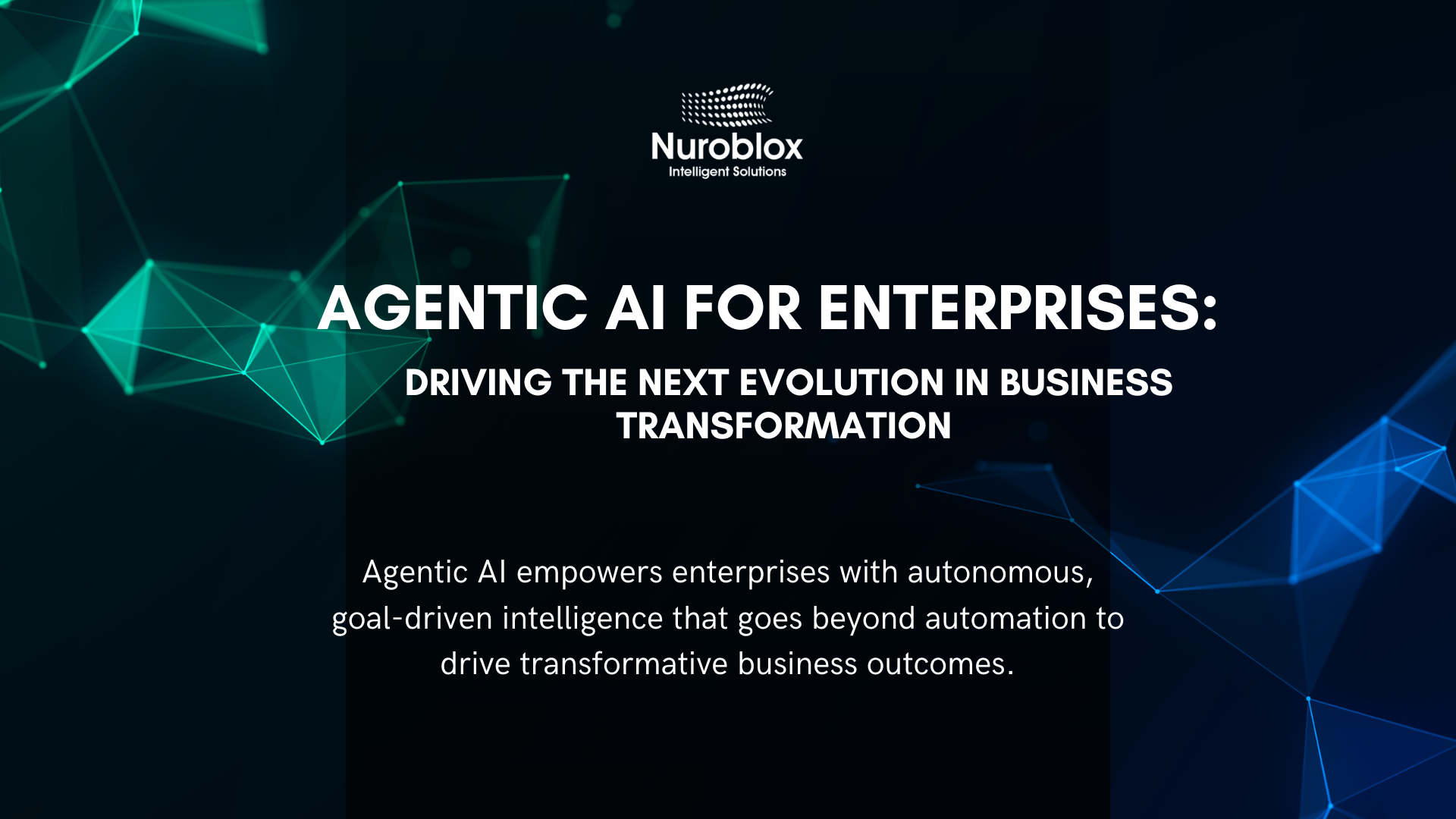Agentic AI for Enterprises: Driving the Next Evolution in Business Transformation
Artificial intelligence in the enterprise has largely been about automation and augmentation. From robotic process automation (RPA) to generative AI copilots, businesses have leveraged AI to speed up processes, reduce costs, and gain data-driven insights. But enterprises are now at the threshold of something more powerful called Agentic AI.
Unlike traditional AI tools that require constant human prompting, agentic AI systems are autonomous
agents capable of reasoning, planning, and acting toward goals independently. Enterprises stand to
gain unprecedented productivity, resilience, and innovation by adopting this paradigm shift.
According to Gartner’s Emerging Tech Impact Radar 2024, agentic AI is expected to see widespread
enterprise adoption within 5 years, creating entirely new business models. Forrester also predicts that by
2027, autonomous agent-based systems could reduce operational costs by up to 20% in complex
enterprise environments.
This blog will explore-
- What agentic AI is, and how it differs from traditional generative AI
- Key enterprise use cases and benefits
- Market forecasts and adoption trends
- Risks and governance considerations
- A framework for implementing agentic AI at the enterprise level
What is Agentic AI?
At its core, agentic AI refers to AI models empowered with-
- Autonomy – ability to act without explicit step-by-step human instructions
- Goal-directed reasoning – capacity to break down tasks, plan, and adapt dynamically
- Tool usage – integration with APIs, databases, and enterprise apps for execution
- Collaboration – working with other AI agents and humans to achieve outcomes
Unlike generative AI copilots (which generate content on request), agentic AI is proactive. It can manage
workflows, interact with enterprise systems (ERP, CRM, cloud environments), and continuously improve
outcomes.
For enterprises, this represents a jump from tool-based augmentation to autonomous orchestration of
workflows.
Traditional AI vs. Agentic AI for Enterprises
| Feature | Traditional AI/Generative AI | Agentic AI |
| Mode of operation | Reactive, prompt-driven | Proactive, goal-oriented |
| Human involvement | High – requires instructions and oversight | Lower – requires governance not micromanagement |
| Scope of execution | Task-specific | End-to-end workflows, multi-step actions |
| Adaptability | Limited to training data | Dynamic learning and context adaptation |
| Enterprise value | Productivity gains | Transformation, resilience, new models |
The Business Case for Agentic AI in Enterprises
Intelligent Workflow Orchestration
Agentic AI can integrate with ERP, ITSM, and supply chain systems to resolve issues autonomously. For
instance-
- Automated procurement agents can negotiate with vendors and adjust supply orders.
- IT service management agents can diagnose and resolve incidents without escalation.
Customer Experience Transformation
Instead of rule-based chatbots, agentic AI can act as truly conversational assistants, capable of handling
end-to-end customer journeys: account setup, billing inquiries, troubleshooting, and even predictive
outreach.
Knowledge and Decision Support
Enterprise data lakes often go underutilized. AI agents can retrieve insights, prepare reports, and even
trigger corrective actions based on KPIs. For example, a finance AI agent could monitor compliance risks
and autonomously suggest corrective actions.
Autonomous IT Operations (AIOps)
McKinsey estimates that AI-driven automation in IT can reduce downtime by up to 30% by proactively
identifying anomalies before they disrupt. Agentic AI can take this further by executing remediation without manual handoffs.
Innovation and New Business Models
Just as cloud computing enabled SaaS ecosystems, agentic AI could enable AI-driven micro-business
processes. Enterprises could leverage these to create new offerings powered by self-operating systems.
Adoption Curve Projection
| Stage | 2024–2025 | 2026–2028 | 2029–2030 |
| AI Role in Enterprises | Copilots, assistants | Agentic pilots in select functions | Enterprise-wide autonomous agents |
| Enterprise Adoption Level | Early pilots, experiments | Mainstream in IT ops, CX, workflows | Transformational new business models |
| Competitive Impact | Efficiency, cost optimization | Rapid time-to-market, agility | Industry disruption, reinvention |
Challenges and Risks of Agentic AI
While transformative, agentic AI in enterprises comes with challenges-
- Governance and Control – Enterprises must establish guardrails to ensure AI actions align with compliance and policies.
- Trust and Explainability – Autonomous actions without explainability can pose regulatory risks.
Explainable AI frameworks are critical. - Integration Complexity – Interfacing with legacy enterprise apps (SAP, Oracle, custom ERP)
remains non-trivial. - Security Risks – Enterprises must prevent “prompt injection” or adversarial exploits where agents
take unauthorized actions. - Cultural Readiness – Shifting from human-driven to agent-driven decision-making requires cultural
alignment and change management.
Implementing Agentic AI in Enterprises: A Framework
To unlock its potential, enterprises need a strategic roadmap.
Identify High-Value Use Cases
Start where autonomy provides measurable ROI in IT operations, finance reconciliation, supply chain
management, and customer support.
Build a Secure AI Infrastructure
- Establish trusted data pipelines
- Leverage enterprise-grade LLMs with fine-tuned domain knowledge
- Ensure integration with compliance and cybersecurity controls
Adopt an Agentic Governance Model
Implement AI stewardship-
- Policy enforcement mechanisms
- Continuous monitoring of agent actions
- Regular audits of decision logs for transparency
Invest in Human-AI Collaboration
Position AI agents as colleagues rather than replacements. Ensure humans retain oversight of high-risk or
high-stakes decisions.
Partner with Technology Providers
Leverage platforms like Nuroblox, which simplify enterprise AI deployment with governance,
interoperability, and domain-ready solutions.

Agentic AI will not just be another productivity tool,it is set to redefine enterprise operating models. Future enterprises will increasingly rely on AI agents as digital team members, autonomously managing workflows, coordinating tasks, and driving resilience.
The rise of agent economies, where AI agents negotiate, transact, and optimize across ecosystems, will
move enterprises from efficiency-driven models to adaptive, self-evolving business networks.
Conclusion: Preparing for the Agentic AI Era
Agentic AI for enterprises is not a question of if, but when. Organizations that adopt now will build
resilience, unlock innovation, and gain competitive advantage in the next era of autonomy.
To get started, enterprises must-
- Partner with providers that bridge AI with enterprise requirements
- Identify use cases with clear ROI
- Prioritize governance and trust frameworks
Enterprises need more than copilots,they need autonomous partners for the future of work.


